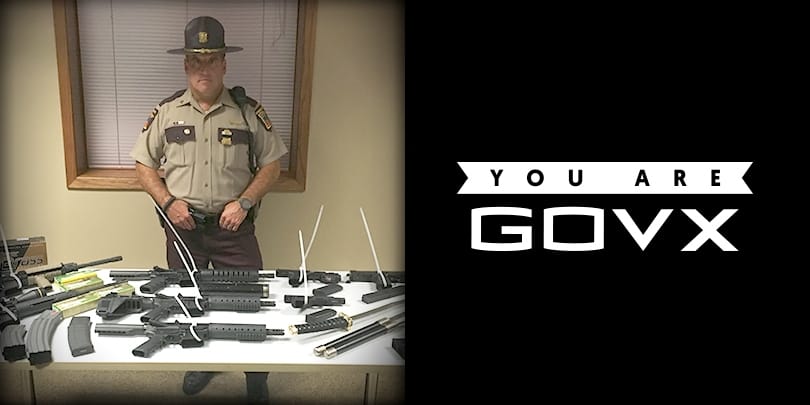Rod Trunzo grew up in Minnesota, in the frigid northeast region known as the Iron Range. His father, an Italian-American iron-ore miner, was a strict man who believed suffering built character. On days spent indoors, he’d prohibit Rod and his brothers from using blankets, arguing that if they couldn’t sit through a 30-minute television program inside without a blanket, then they couldn’t sit for hours in a deer stand in the frost-covered woods.
Rod’s home is a place where the ground is as hard as the people buried beneath it. After his death, his father stayed in a morgue for weeks while the family waited for the frozen ground to soften so they could lay him to rest. Somewhere during his upbringing among these resilient people and patient hunters, Rod decided to adopt a life of service.

He’s a cop who speaks like a cop, with a clip to his voice and a fondness for phrases like “positive impact” and “proper reaction”—the authoritative speech of a man who’s been in uniform since age 19. Between departments in Texas and Minnesota, he has 33 years of experience under his belt, including corrections, state patrol, narcotics, federal drug enforcement, and SWAT.
30 years in law enforcement would give just about any cop an arsenal of tales to tell. Rod is known as the guy with the stories.
Perhaps it was his father’s distaste for wasting away the day on a couch that pushed him to seek a career as far away from a desk as possible. It was the mid-80s, and Texas was hiring. Rodney joined a department in Mesquite where he served for several years before returning to his home state where he’d work the rest of his career.
Spending over 30 years in law enforcement would give just about any cop an arsenal of tales to tell. Rod is known as the guy with the stories.
There was the time he and three other officers saved the life of a man who’d driven into a swamp after a heart attack.
There was the time a suspect took a shot at him in an alley. Rod returned fire and disabled the man with a shot to the head, the bullet embedding in the skull but not penetrating.
There was even a time when a suspect stole his squad car. That one always gets a few laughs.
Then there are stories of loss that he tells less often. This past June marked the 20-year anniversary of the death of Tim Bowe, a trooper with Minnesota State Patrol Special Response Team. A husband and father of two, Tim was killed while responding to a shooting call while assisting local deputies. Rod remembers Tim’s badge number—#489—and thinks of him often.
While the death of a fellow officer remains on his mind, Rod says he’s able to function without the tougher parts of the job getting to him. “Things don’t eat at me to the point where they drive me crazy,” he said. “But I have seen guys who can’t cope with it. When you respond to a scene where a suspect had barricaded himself inside, who then shot himself in the head and blood is dripping off the ceiling, I can understand how that can affect someone.” He goes on to describe how in the mid-90s, counseling and professional management of traumatic experiences wasn’t as popular as it is today. His office now designated troopers as the official people to talk to when something intense transpires. But in the days after Rod shot that man in the alley, there wasn’t much after-the-fact processing of the incident. He just dealt with it.
Rod may be unflappable as a police officer, but as a family man and a friend, he’s full of heart. He speaks fondly of his daughter, who works with special needs children, and coaches hockey and lacrosse on the side. His son Ryan served with the 101st Airborne and was honorably discharged after a combat injury he sustained in Iraq. Ryan’s friends and Army buddies knew him as “Trunny”, and he would’ve been 30 years old this year. In 2014, Ryan passed away after a struggle with PTSD. Ryan hunted with his father every year since he was old enough to shoot a rifle, and Rod remembers his son as a man who “bled red, white, and blue.”

As a father and a cop, Rod has endured a great many things. But through everything traumatic and painful, he’s never wavered in his commitment to a life of service. His coworkers describe him as a loyal brother, especially the men he served with in the SWAT community—someone who would lay down his life for them just as they would for him. Rod believes in the uniform he wears, and is proud of his decades spent on the job.
But when he’s not in uniform, he’s in Realtree camo, waiting for the next ten-point buck to come into focus through his rifle’s scope. He’ll wait for hours. He’ll wait for as long as it takes … no matter how cold it is outside.

